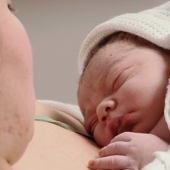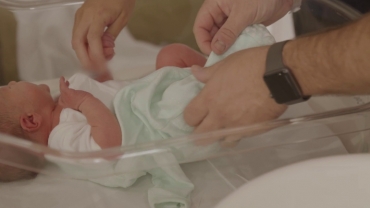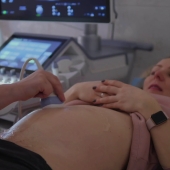From doctor’s appointments to blood tests, during pregnancy doctors make sure mothers are screened for anything that could cause health concerns to the mother and baby. “There is undiagnosed diabetes in the general population that gets picked up in pregnancy,” said Dr. Ravi Chokshi, an OB/GYN for Lee Health.
But the problem can be treated with diet changes and medication, if necessary. “There’s a misconception that I’m pregnant; I’m allowed to eat as much as I want. I‘m eating for two, and that’s not really true. The American of Congress of OBGYN actually recommends you go up by 300 calories by your second and third trimester. Most of us already overeat by 200 and 300 calories a day,” he explained.
Pregnant mothers are screened early to make sure their blood sugars are normal. “The recommendations are we screen at least everybody with a blood sugar very early in pregnancy. After that, we screen everybody after 24 weeks. The reason for that is the further pregnancy gets, the placenta gets bigger, and the hormones cause increased blood sugars,” said Dr. Chokshi.
If a mother is diabetic during pregnancy, her blood sugars are uncontrolled—that blood sugar goes to the baby, causing the baby to create more insulin. “Babies are not only bigger; they grow differently. Their bellies are bigger than their heads. Their shoulders are bigger than their heads,” he said.
Mothers who are diabetic during pregnancy are also at a higher risk of needing a C-section and developing diabetes later on in life. “If we can get your blood sugars in good control, studies show that you are going to have the same kind of pregnancy that non-diabetic moms have,” said Dr. Chokshi.
Eating a healthy diet, avoiding processed foods, and eliminating sugar can help pregnant mothers keep their blood sugar under control. All to ensure a healthy pregnancy and delivery for both mom and baby.
- 634 views













